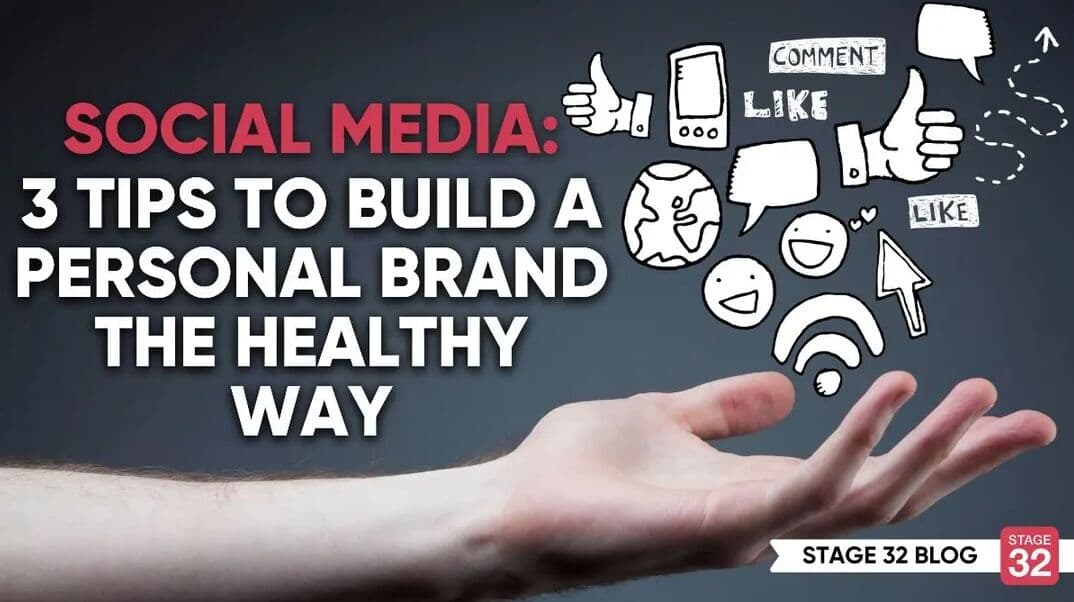How To Make A Successful Short Film On Your Own Terms

How To Make A Successful Short Film On Your Own Terms

Certain success markers have become so ingrained in our industry that we may be striving for them without knowing there's much of an alternative.
How did your latest film do? Did it go viral? Did it get into festivals? Any good festivals? How about distribution? Did it make a profit?
What’s the Rotten Tomato Score on your feature? How many five-star reviews do you have on Prime Video? Yes, but are those reviews Verified Purchases?
While we’re on the subject, how’s your IMDb ranking?
How many likes, views, shares, and comments are you getting on social media? Are you Insta-famous? Do you have that validating blue check mark next to your handle yet? Why the hell not?
Did the work you produced yourself get you an agent? How many pitch meetings did you take? Did it lead to legitimate paid work? Was that work successful?
These insidious metrics are the default lens through which we view the success of everyone’s creative efforts, including our own.
I’m guilty of chasing that type of success myself. And there’s always a strong impulse to compare ourselves with other filmmakers on either end of the success spectrum to see how we’re doing, which doesn't help.
While many of these metrics are understandable and undeniably worth celebrating, they can also be largely out of our control. But there’s another path if you're willing to truly embrace the creative process, celebrate the wins as you define them, and change how you relate to fulfillment and fear.
This past weekend, I released a five-minute, no-budget short film, B4Q (a satire about cults). While it's still too early to tell if it's traditionally successful, the process has felt gratifyingly successful by an altogether different set of variables.

Niche Down Even Further
We’re constantly asked by others during our creative process: Who’s your audience? Niche down. Who is this for?
I decided early on that instead of thinking of a faceless group or demographic that might enjoy what I put out there, I’d make a list of about twenty people who absolutely love what I do, not "yes-men," but genuine supporters who consistently understand my irreverent sense of humor.
And it doesn’t have to be twenty. It can be five! However many you have, write them down and take comfort in knowing that at the very least these super fans are going to dig what you do.
I knew there was a good chance that my creative collective (dare I say cult) would enjoy my short film about, well, cults.
It gave me the freedom and confidence to embody the kind of creativity that comes with not trying to please everyone, everywhere. The theory was that this niche-ier niche would be a proxy for others who might love the film, as well.
Fundamentally as an artist, you’re creating work for yourself and for your own sensibility (the niche-iest niche of all).

Partner with Like-Minded Artists
Working without proper funding requires enthusiastic partners in the trenches with you that understand the intentions and limitations of working with no budget.
In my case, I didn’t have the resources to pay for much of anything and didn’t necessarily want to crowd-fund during the pandemic. I really just wanted to get on set again after a long hiatus and have a blast. And the five other people that worked with me on this thing felt exactly the same way.
My colorist Jacob Boblitt, for instance, was interning for me through NYU and he was incredibly eager to throw his hat in the ring and color his first professional project. He had everything to gain from the experience and for the credit and absolutely nailed it.

Be Prepared For and Embrace Synchronicity
When I began to really consider shooting the short in LA in March, the right people began to show up. This happened on my feature, Kensho at the Bedfellow, as well, and it’s truly a magical thing to witness.
Sarah Traisman, an extremely funny actress with whom I became friendly (but who lives in New York), was someone who I had been thinking about to co-star with me in B4Q. Returning to the theater for the first time since the beginning of the pandemic, I spotted her name listed as an understudy in the Geffen production of Power of Sail with Bryan Cranston. It was an amazing confluence. She was in LA for a month, and I knew it was go-time.

Lean into the Nos
When it came time to make a poster, I was coincidentally teaching meditation at The Refinery – “one of the leading entertainment marketing agencies behind your favorite posters, trailers, and digital campaigns.”
Perfect, I thought. Let’s embrace even more synchronicity (I am one lucky jerk)!
As you can imagine, there wasn’t much they could do without a budget, so this one became a very compassionate and empathetic "No." I mean, they had just done the poster art for Severance and The Suicide Squad.
But I’ve learned that really leaning into the nos, expecting them and embracing them, gets you closer to the inevitable "Yes." It’s easily a 99-to-1 ratio in every aspect of this business and is in no way exclusive to making a short film.
It means, though, that you have to consistently put yourself out there and be unafraid to reach out to anyone.
Pro Tip: No will usually come in the form of silence and indifference to your outreach. We can’t take it personally because while it’s unkind, radio silence has become yet another default in our industry (and elsewhere, unfortunately).
What we can do is ensure that we don’t perpetuate that indifference towards others. No is always the second-best answer.
I ended up working for a month with Vijay Infant Raj of Fantart Studios and absolutely love what he created.

Work Hard and Have Fun
These two are very much in a cosmic dance with one another.
For most of us, working hard at our craft and creating what we love without fear isn’t like work at all because it’s inherently fun to be creative and play make-believe for a living. It’s also fun to actually make a living doing what we love, too.
However, truly enjoying the creative process is vital because it’s where we spend most of our time on a project. It’s really where we spend most of our lives if we’re in it for the long haul. Even the most traditionally successful filmmakers spend the majority of their time in the process of creation and not basking in an ideal outcome.
I spent the last five months working plenty hard to get my five-minute short where I wanted it (any indie filmmaker will tell you that things take five times as long when you don’t have a budget).
But I reminded myself often to enjoy the ride. In fact, there’s some nice behind-the-scenes footage on my IG as I reminded everyone on set to have fun before our first take. I was clearly talking to myself as much as I was to everyone else.

Success and Fulfillment
I’ve been swimming in gratitude these last few days. Those twenty super supporters did, in fact, love the film and I started hearing from their friends who also got a kick out of it. I’m now hearing from folks I haven’t heard from in years, both in the industry and beyond.
The coolest part? New fans who are discovering the short organically.
Ultimately, success has to be defined by you and can certainly include those default metrics I mentioned at the top. And, of course, I'll continue to push the short out there to move the needle on my career.
We know, though, that true fulfillment isn’t on the other side of any kind of achievement or success. Cultivating internal fulfillment first and then exporting it out through your work is your best bet.
And part of that process is satisfying our own artistic vision unencumbered by what we think our mercurial industry wants. Work as hard as you sustainably can and have crazy amounts of fun while doing it.
I think you’ll find this feels not only gratifying and successful but wonderfully validating (blue check mark or not).
Let's hear your thoughts in the comments below!
Got an idea for a post? Or have you collaborated with Stage 32 members to create a project? We'd love to hear about it. Email Emily at emily@stage32.com and let's get your post published!
Please help support your fellow Stage 32ers by sharing this on social. Check out the social media buttons at the top to share on Instagram @stage32, Twitter @stage32, Facebook @stage32, and LinkedIn @stage-32.
About the Author

Brad Raider
Actor, Director, Producer, Screenwriter
Raider’s work as an actor, filmmaker and teacher is rooted in a deep fascination with consciousness, creativity, and life purpose. Born and raised in Philadelphia, Raider graduated from the Tisch School of the Arts at New York University, where he trained at the Circle in the Square Theatre Schoo...





